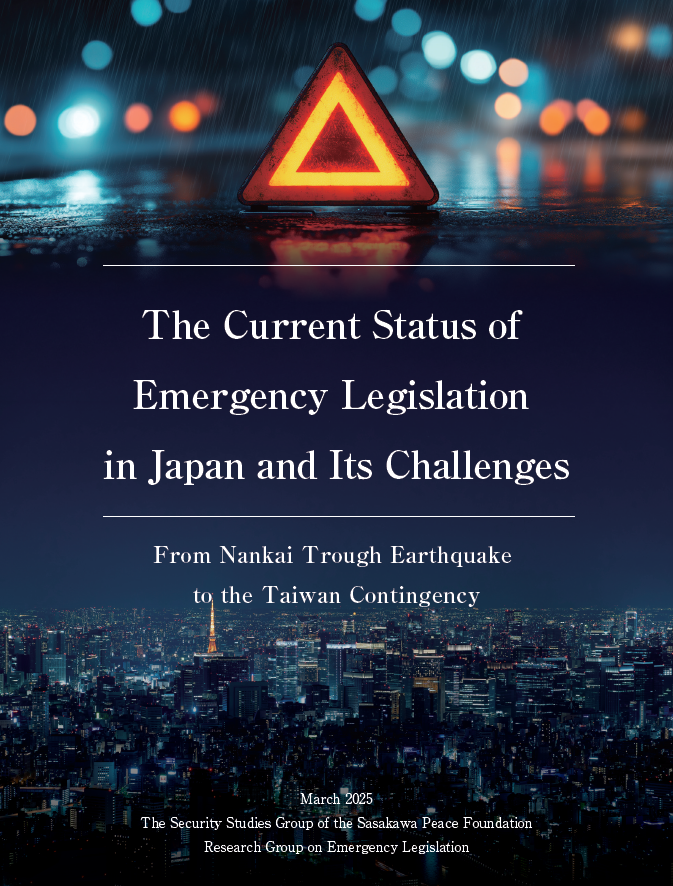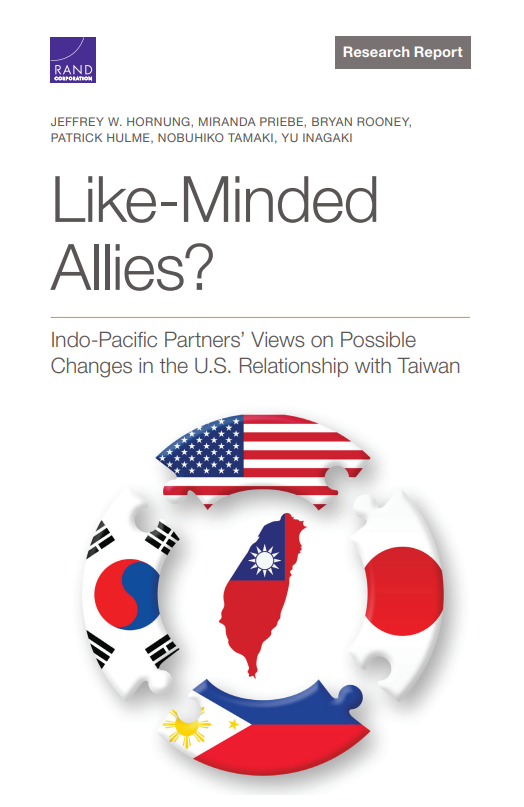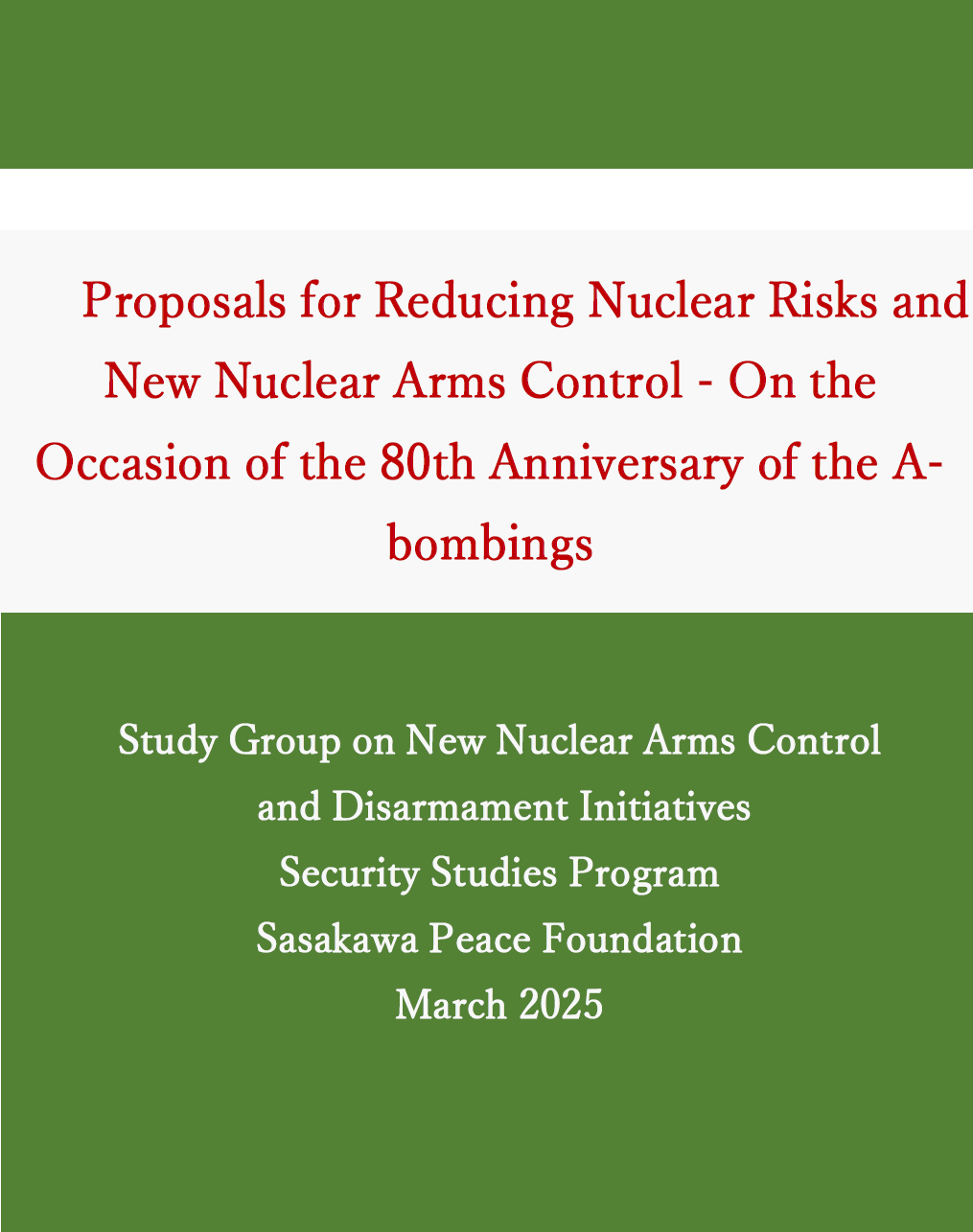
- The Contemporary U.S. Debate
- Policy Options for Signaling a Change in the U.S. Relationship with Taiwan
- Methodology
- Report Road Map
- 1949-1950: Decision Not to Defend Nationalist Forces on Taiwan
- 1950-1955: United States Declares It Will Defend Taiwan
- 1955-1979: U.S. Alliance with Taiwan
- 1970s-1980s: U.S.-Taiwan Relations Change; Strategic Ambiguity Is Born
- Post-Cold War Developments: Strategic Ambiguity Under Stress
- Conclusion
- History of Japan’s Relations with Taiwan
- Relations with China and the United States: Alignment with the United States
- View of Taiwan: Directly Linked to Japan’s Security
- Japanese Views of Hypothetical Changes in U.S. Taiwan Policy
- Conclusion
- History of South Korea’s Relations with Taiwan
- Relations with China and the United States: Revolves Around North Korea
- View of Taiwan: Not a Direct Priority
- ROK Views of Hypothetical Changes in U.S. Taiwan Policy
- Conclusion
- History of the Philippines' Relations with Taiwan
- Relations with China and the United States: Balancing Between Countries
- View of Taiwan: Not a Primary Concern Historically
- Philippine Views of Hypothetical Changes in U.S. Taiwan Policy
- Conclusion
- Allies’ Potential Reactions to Increased U.S. Support to Taiwan
- Potential Responses to Reductions in U.S. Support to Taiwan
- Final Thoughts
Like-Minded Allies?
Indo-Pacific Partners’ Views on Possible Changes in the U.S. Relationship with Taiwan
Jeffrey W. Hornung (Rand Corporation), Miranda Priebe (Rand Corporation), Bryan Rooney (Rand Corporation), Patrick Hulme (Harvard Kennedy School), Nobuhiko Tamaki (Chuo University), Yu Inagaki (Sasakawa Peace Foundation)
July 21, 2023
The Japan-U.S. program worked with the RAND Corporation in the U.S., for a research project from 2022-2023 on allies' perspectives on possible changes in the U.S. relatinship with Taiwan. The findings of this research have been published as “Like-Minded Allies? Indo-Pacific Partners’ Views on Possible Changes in the U.S. Relationship with Taiwan” on RAND's website.
While most discussion about the future of the U.S. relationship with Taiwan focuses on whether the U.S. should maintain the policy of strategic ambiguity, this report considers an often-overlooked question: how would U.S. regional allies (Japan, the ROK, the Philippines) respond to a change in U.S. policy toward Taiwan?
For this purpose, the report reviewed the history of U.S. allies’ relationships with Taiwan and contemporary relations each ally has with the United States, China, and Taiwan. Authors also interviewed policymakers and experts in these allies about their views on hypothetical policy changes the U.S. could undertake. The report concludes with an implication of these allies' perspectives for U.S. policy on Taiwan.
Click the link below to download the PDF full text.
https://www.rand.org/pubs/research_reports/RRA739-7.html
While most discussion about the future of the U.S. relationship with Taiwan focuses on whether the U.S. should maintain the policy of strategic ambiguity, this report considers an often-overlooked question: how would U.S. regional allies (Japan, the ROK, the Philippines) respond to a change in U.S. policy toward Taiwan?
For this purpose, the report reviewed the history of U.S. allies’ relationships with Taiwan and contemporary relations each ally has with the United States, China, and Taiwan. Authors also interviewed policymakers and experts in these allies about their views on hypothetical policy changes the U.S. could undertake. The report concludes with an implication of these allies' perspectives for U.S. policy on Taiwan.
Click the link below to download the PDF full text.
https://www.rand.org/pubs/research_reports/RRA739-7.html
Description
| Author/Editor | Jeffrey W. Hornung (Rand Corporation) Miranda Priebe (Rand Corporation) Bryan Rooney (Rand Corporation) Patrick Hulme (Harvard Kennedy School) Nobuhiko Tamaki (Chuo University) Yu Inagaki (Sasakawa Peace Foundation) |
| Date of Publication | July 2023 |
| Content | CHAPTER 1 Introduction
CHAPTER 2 History of the U.S. Security Relationship with Taiwan CHAPTER 3 Japan CHAPTER 4 The Republic of Korea CHAPTER 5 The Philippines CHAPTER 6 Findings |

